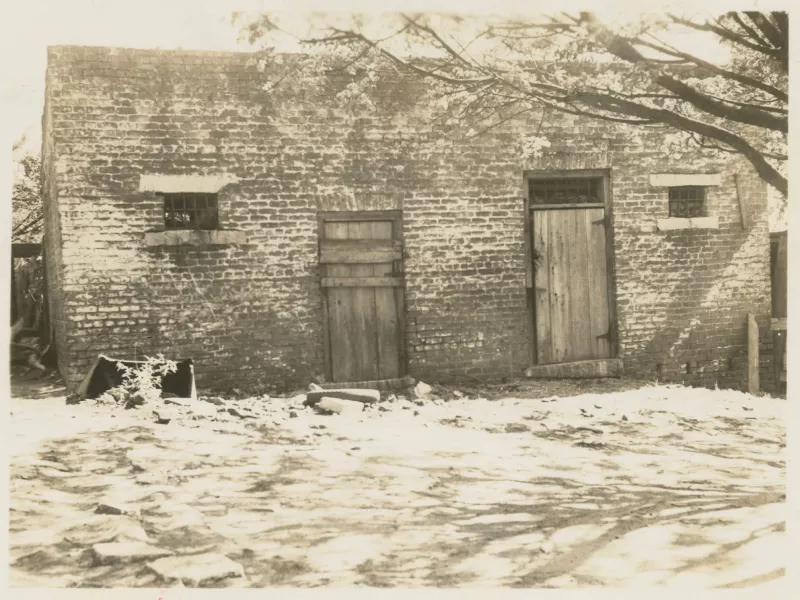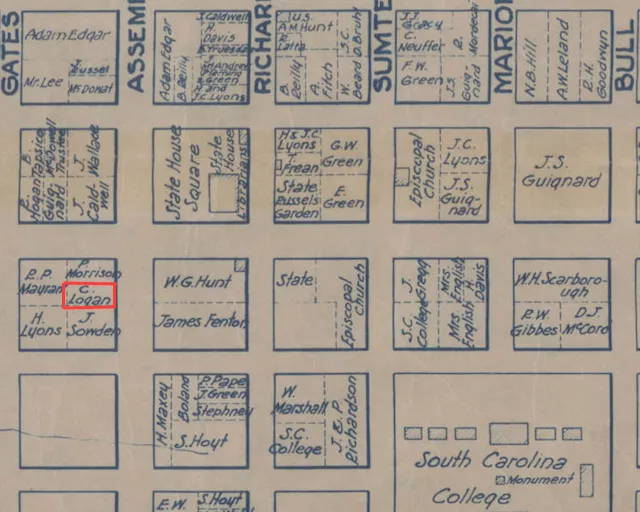1031 Assembly Street
Site of Charles Logan's Slave Pen
Located near the southwest corner of Assembly and Senate streets, Charles Mercer Logan’s property included a holding pen and small brick structure (above), which housed enslaved African Americans. Unlike Charleston, Columbia did not have a public slave market. Therefore, auctioneers, including the Levin Brothers and Peixotto and Sons, would have likely housed enslaved persons at this site prior to their sale. Logan also gained notoriety as a slave trader, although he was listed as a shoemaker in the 1860 Columbia City Directory. After the Civil War, he became a horse trader and dabbled in real estate. Upon his death in 1903, he bequeathed $60,000 to the public schools, Columbia Hospital, and St. Peter’s Catholic Church. In 1951, this structure was disassembled and moved to a private residence.

